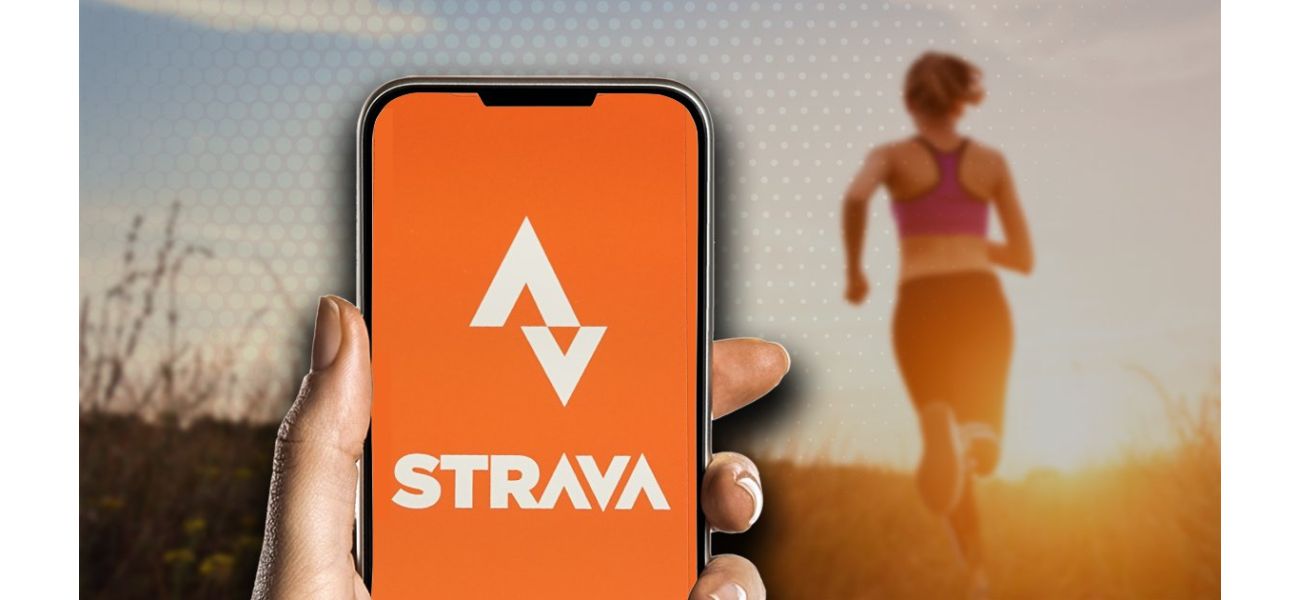People on Strava are pretending to do intense workouts to impress their followers, like they are buying their followers' approval.
Active members can earn badges and sponsorships.
September 16th 2024.

According to a recent report by ITV News, some people are using a popular exercise tracking app called Strava in a rather unexpected way. Instead of actually exercising themselves, they are paying others, known as "Strava mules," to complete workouts on their behalf. It seems like this trend is becoming quite popular, with over 100 million people around the world using Strava to record their running, cycling, and other physical activities.
The way it works is that users can share their recorded data with friends, who can then give them virtual "kudos" for their athletic efforts. However, it turns out that not everyone is being truthful about their achievements. Some would rather pay others to do the work for them, and these "mules" are now advertising their services on social media platforms.
One such "mule" is Wahyu Wicaksono, a runner from Indonesia, who has 76 regular customers. He told ITV News that he has been passionate about running since he was a child and often participates in running championships. However, he also saw an opportunity to make some extra money as a Strava jockey, and so he decided to give it a try. Wahyu charges about 70p per kilometer and has different fees for races and marathons. Once a customer hires him, he logs into their Strava account and completes the run on their behalf.
When asked about his clients, Wahyu mentioned that some of them are unable to run due to injuries, while others simply don't have the time. But there's another reason why people might be willing to pay for this service - the opportunity to earn virtual badges and even make money. According to Adrienne Adhami, a popular podcaster also known as Adrienne LDN, some "mules" have been offered brand deals and spots in competitive races, making it a more serious business.
This trend is not limited to Indonesia, as it has also become popular in the UK. A London-based IT expert named Gil has also jumped on the bandwagon and now has dozens of clients. He mentioned that he initially thought of it as a fun way to make some extra cash during his free time while working from home. However, he quickly realized that there was a demand for his services, and so he decided to continue.
Gil's services can be rather expensive, with a 5km run costing £2.50 and a marathon costing £200. He also offers a subscription program for three 10km runs per week, which costs £42 per month. But despite the high prices, Gil has no shortage of clients, as many people are willing to pay for the bragging rights and the chance to impress others online.
However, this practice raises some ethical concerns, and Strava has made it clear that it is against their terms of service. The platform prohibits users from sharing their account information with others and misrepresenting their activities. If caught, users could face suspension from the platform. Despite this warning, some people are still taking the risk and hiring "mules" to improve their Strava stats.
In conclusion, it seems like the use of "Strava mules" has become a global phenomenon, with its popularity exploding in countries like Indonesia and the UK. While it may seem like a harmless way to boost one's online presence, there are serious ethical concerns surrounding this practice. So the next time you see someone with an impressive Strava record, it might be worth considering if they actually did the work themselves or paid someone else to do it.
The way it works is that users can share their recorded data with friends, who can then give them virtual "kudos" for their athletic efforts. However, it turns out that not everyone is being truthful about their achievements. Some would rather pay others to do the work for them, and these "mules" are now advertising their services on social media platforms.
One such "mule" is Wahyu Wicaksono, a runner from Indonesia, who has 76 regular customers. He told ITV News that he has been passionate about running since he was a child and often participates in running championships. However, he also saw an opportunity to make some extra money as a Strava jockey, and so he decided to give it a try. Wahyu charges about 70p per kilometer and has different fees for races and marathons. Once a customer hires him, he logs into their Strava account and completes the run on their behalf.
When asked about his clients, Wahyu mentioned that some of them are unable to run due to injuries, while others simply don't have the time. But there's another reason why people might be willing to pay for this service - the opportunity to earn virtual badges and even make money. According to Adrienne Adhami, a popular podcaster also known as Adrienne LDN, some "mules" have been offered brand deals and spots in competitive races, making it a more serious business.
This trend is not limited to Indonesia, as it has also become popular in the UK. A London-based IT expert named Gil has also jumped on the bandwagon and now has dozens of clients. He mentioned that he initially thought of it as a fun way to make some extra cash during his free time while working from home. However, he quickly realized that there was a demand for his services, and so he decided to continue.
Gil's services can be rather expensive, with a 5km run costing £2.50 and a marathon costing £200. He also offers a subscription program for three 10km runs per week, which costs £42 per month. But despite the high prices, Gil has no shortage of clients, as many people are willing to pay for the bragging rights and the chance to impress others online.
However, this practice raises some ethical concerns, and Strava has made it clear that it is against their terms of service. The platform prohibits users from sharing their account information with others and misrepresenting their activities. If caught, users could face suspension from the platform. Despite this warning, some people are still taking the risk and hiring "mules" to improve their Strava stats.
In conclusion, it seems like the use of "Strava mules" has become a global phenomenon, with its popularity exploding in countries like Indonesia and the UK. While it may seem like a harmless way to boost one's online presence, there are serious ethical concerns surrounding this practice. So the next time you see someone with an impressive Strava record, it might be worth considering if they actually did the work themselves or paid someone else to do it.
[This article has been trending online recently and has been generated with AI. Your feed is customized.]
[Generative AI is experimental.]
0
0
Submit Comment





